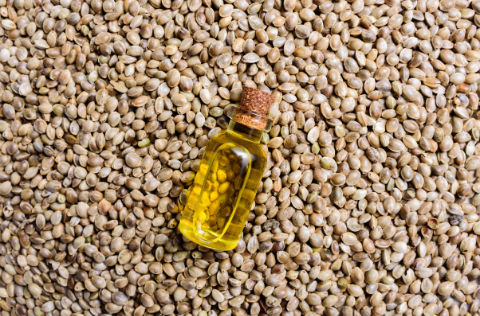
Published on
Balancing Omega-6 & Omega-3 for Optimal Health
Omega-3 and omega-6 fatty acids are both essential for our health. They play key roles in brain function, immune support, and inflammation regulation. Since our bodies cannot produce them, we need to obtain them through our diet. While both fatty acids are crucial, maintaining the right balance is key to supporting overall well-being.
The Importance of Omega-3 & Omega-6
Neither omega-3 nor omega-6 is inherently better or worse—each has a unique function in the body:
-
Omega-3 fatty acids, especially EPA and DHA, support heart health, brain function, and have anti-inflammatory properties. They are found in Fish Oil Concentrates, Algae Oils and Linseed Oils.
-
Omega-6 fatty acids, especially GLA, play a crucial role in immune response, cell function, and skin health. They are commonly found in vegetable oils, like Borage oil, Evening primrose oil, Blackcurrant oil and Echium oil.
The challenge lies in maintaining the right ratio between the two. In traditional diets, the omega-6 to omega-3 ratio was close to 1:1. Today, due to processed foods and vegetable oil consumption, the ratio in Western diets has shifted to 10:1 or higher. This imbalance can contribute to chronic inflammation and health issues.

Not All Omega-6 Is the Same: The Role of GLA
The omega-6 fatty acid, gamma-linolenic acid (GLA), has unique anti-inflammatory benefits. Found in borage oil, evening primrose oil, echium oil and blackcurrant seed oil, GLA helps support skin health, joint function, and hormonal balance. Unlike other omega-6 fats, GLA converts into anti-inflammatory compounds in the body, making it a valuable part of a balanced diet.
Achieving a Healthy Balance
Instead of viewing omega-3 and omega-6 as "good" or "bad," the focus should be on consuming them in the right proportions:
-
Supplement More Omega-3-Rich Oils: Fish Oil Concentrates, Algae Oils, Linseed (flax) Oils and Chia Oils
-
Choose Beneficial Omega-6 Sources: Prioritize oils with GLA, such as Borage Oils and Evening Primrose Oils.
Both omega-3 and omega-6 are essential for good health, and neither should be avoided. The key is to consume them in a way that supports the body's natural processes. By choosing high-quality sources and maintaining a better balance, we can harness the full benefits of these essential fatty acids for long-term health.


